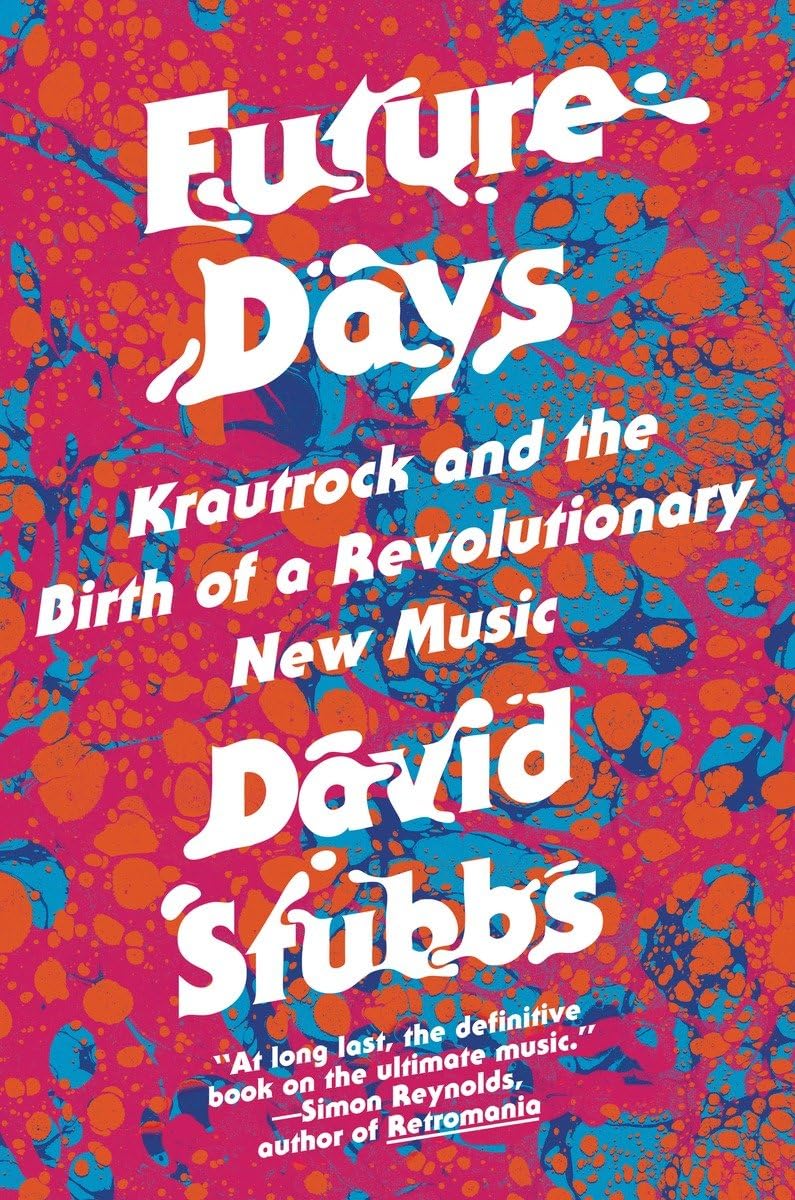

Full description not available
J**I
Good book
Great book about interesting subject. Well written and a must for krautish(?) people.
M**N
A must read for all fans of Krautrock
Very well written.
B**T
Pretty good with a few caveats
Pretty good with a few caveats. The writer includes song by song descriptions for many of the albums he discusses in detail, which would seem to be something he has developed skill, confidence, and interest in during his time as a music reviewer. However, in the context of a book like this I found it to be distracting and unnecessary; many of those reading it will be familiar with the albums already and those who aren't would probably be interested in checking them out, but having someone describe each song using elaborate metaphors and analogies in unlikely to add much for either party.The second thing that kind of bugged me is that while an author's perspective in a book like this will inevitably come through, particularly in the selection of albums and artists to be discussed, this particular author's perspective seems particularly shaped by the orthodoxies of his given background, and this seems to be indulged to an extent that it lessens the work as a whole; in addition, this perspective represents an outdated and unjustifiably elitist one that thankfully a large percentage of the music-listening world has started to move away from.He obviously treasures any music that is difficult to listen to but treats it as a given that this criteria is one that is obviously superior to any number of other factors that one could use. Therefore early Tangerine Dream is good but all of their late seventies/early eighties stuff is worthless. But since Kraftwerk are held in respect, both their difficult and more "commercial" work is worthy of admiration (bordering on the hyperbolic) and discussion. But one of the things that makes them respectable is how influential they are. But no credit is given to Tangerine Dream for the immense influence their commercial work had. And Popol Vuh's synthesizer-less material is given short shrift and it's stated that many do not consider this work to be "true" krautrock (which was certainly news to me and I would imagine quite a few others); the music's supposed religious influence and aspiration is stated as evidence that it (including the soundtracks to Herzog's movies) is meant to be pleasant sounding and lacking in darker emotional resonances, which would be a surprise to many that have heard the Aguirre soundtrack, the main theme of which is certainly a pretty melancholy and desolate piece of music. Also, the "remixed" second half of Neu! 2 is somehow attributed with influencing modern remix culture (huh?), and treated as being somehow a listening experience comparable to the original compositions on their first three albums.All of this is by way of getting at the following point. You can try to canonize whatever bands you want, treat whatever subjective criteria you choose as being an objective reflection of value, and try to propagate the old album-oriented perspective, but the way things are going (and for the better, which is often not the case) is that most music listeners do not feel the need to make these distinctions and value judgements anymore. Yes, sure, Can is one of the greatest bands of all time and they have several albums that are chock full of amazing songs. But that doesn't preclude anyone from saying that Tangerine Dream's original contributions to the Risky Business soundtrack are also great. You don't need to pick one over the other or put the other down. It doesn't really serve to elevate the band you think is more important. They're just different sounds that serve different moods at different times. Trying to make these distinctions based on "importance" makes music boring and bogs down the listener in trying to sort out supposed social and cultural significance (i.e., other people's assigned meaning and value) instead of just leaving the listener alone to immerse themselves in their personal subjective experience with a specific piece of music, which is really the only experience that deserves to be labeled as "meaningful," as well as opening the author up to criticisms of using value systems that are never explicitly established and defended to support judgements that are ultimately unnecessary.
J**H
Makes a great door stop, but not worth reading.
This book was a complete disappointment. I only got half way through before giving up on reading it. The author seems to have listened to the same music I did, but in an alternative universe. Florian Schneider looks like a benevolent sea monster, and Conrad Scnitzler reminds him of the cartoon character Bart Simpson, and where does he find these musicians he compares the German bands with? I've listened to rock'n roll my whole life and never heard the Red Dirt Riders, Fat Cat Trio or Jasper Carrot. I read music bios all the time, and this is the strangest one I've ever come across. I actually threw it in the trash on the curb before finishing it, but fished it back out of the garbage because it cost me $25. I'll take it to the used book store to see if I can exchange it for something else. Maybe Jasper Carrot would like read it, because his name is mentioned.
Trustpilot
2 weeks ago
2 months ago